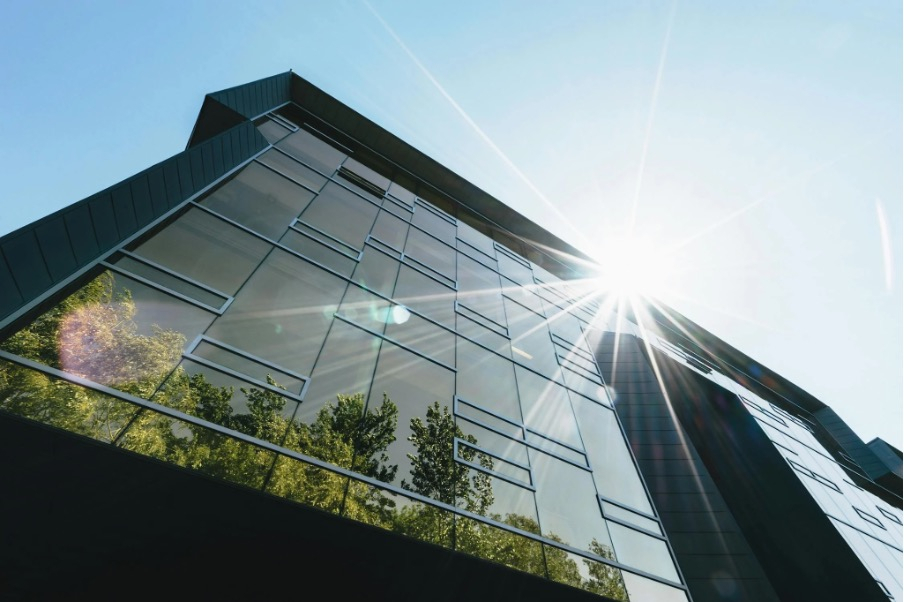[ad_1]
The urgency for sustainable development has never been more pronounced, with cities worldwide grappling with the challenges of climate change, resource depletion, and growing populations. In this context, entrepreneur, software engineer, and technology expert Yifei “Efay” Guo’s contributions are both timely and transformative, offering a glimpse of an urban living future that prioritizes the planet.
“The integration of technology in urban development is a necessity for sustainability, not a mere option,” states Guo, whose name has become synonymous with innovative solutions in the eco-friendly real estate sector, including developing energy and carbon management software systems. Guo’s work, a blend of technological prowess and environmental stewardship, has paved the way for smarter, more sustainable urban landscapes.
A Vision for the Future
Guo’s journey from a tech enthusiast to a leading sustainable urban development figure testifies to innovation and foresight. His experience as chief software developer at technology firms, including DLG Big Data and aiQO.ai, plus his entrepreneurial ventures founding the SeeU App and Bogo Technology, has solidified his technical expertise in software creation and user experience and leadership abilities within teams of developers, data analysts, and machine learning engineers. He has developed mobile and web applications from the ground up—from a job matching platform and a peer-to-peer live video streaming app to sophisticated educational software—that addressed and bridged significant market gaps, elevating the user experience and industry process.
Today, as the chief technology officer (CTO) and partner at Deeprock Net Zero Technology, Under the brand Biosphere 3, Guo has been instrumental in developing energy and carbon management software systems, integrating with Internet of Things (IoT) devices such as smart meters, solar panels, large-scale batteries, and EV charging stations, that address the critical need for energy efficiency and carbon neutrality in the real estate industry.
The real estate sector significantly contributes to global greenhouse gas (GHG) emissions, primarily through energy consumption for heating, cooling, lighting, and other operational needs. Guo explains that these activities require energy, which, in many parts of the world, is primarily generated from fossil fuels such as coal, natural gas, and oil, contributing to global warming and climate change.
For Guo, this is their working ground at Deeprock Net Zero Technology. By leveraging the Internet of Things (IoT), artificial intelligence (AI), and renewable energy technologies, they aim to establish projects at the community level that achieve net zero emissions and focus on environmental, social, and governance (ESG) goals. These initiatives reduce environmental harm and bring long-term sustainability to urban development projects.
Bridging Technology and Sustainability
The core of Guo’s work lies in integrating smart technologies with eco-friendly building practices . Guo has developed software systems including a medium-like knowledge database for international net-zero projects, energy and carbon data visualization tools, the Net Zero residential app, and carbon market calculators, among others. These tools allow commercial buildings, offices, and industrial parks to monitor and reduce their energy consumption in real-time.
Utilizing IoT devices like smart meters and solar panels, Guo has created a dynamic and responsive energy management ecosystem that monitors, controls and optimizes energy use, integrating large-scale batteries and electric vehicle (EV) charging stations to ensure a sustainable energy flow within urban infrastructures.
Guo also made notable contributions to developing advanced energy systems, including smart microgrids and virtual power plants (VPPs) that represent a leap in energy management, allowing for the decentralized generation and distribution of renewable energy. By efficiently managing and distributing energy produced from renewable sources, Guo and his team facilitated a decentralized generation and distribution of renewable energy, making it easier and more efficient to incorporate solar, wind, and other renewable sources into the energy mix. This reduces reliance on fossil fuels, promoting a shift towards cleaner, more sustainable energy sources.
At the same time, to achieve a higher level of Net-Zero goals, Guo also developed a ChatGPT model trained with proprietary data and objectives to promote, understand, or achieve Net-Zero emissions. He then created a mobile application version that supports this ChatGPT model, making the system more accessible and convenient for the general public.
Guo declares, “Our goal at Biosphere 3 is to make sustainable living the default, not the exception. This holistic approach exemplifies how technology can be harnessed to achieve net-zero carbon emissions, making a tangible impact on the fight against climate change.”
The Challenge of Change
Despite the benefits of integrating technology into urban development, widespread adoption faces challenges. Guo acknowledges that the initial cost and upfront investment can deter smaller players and property owners from adopting these innovative solutions.
Such a perspective underscores the need for supportive policies and incentives to encourage the transition to eco-friendly practices. This situation requires developers like Guo to explore how technology in urban development, communication, and business can be more cost-effective and accessible. The goal is to democratize sustainability, enabling a broader spectrum of stakeholders to contribute to sustainability.
With innovators like Guo in the field, the future of sustainable urban development is full of possibilities. As he confronts existing barriers and inspires a new wave of technologists and entrepreneurs, Guo transforms the challenge of change into a roadmap for innovation and progress, realizing a more sustainable future for all.
[ad_2]
Source link




